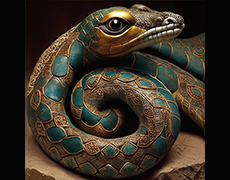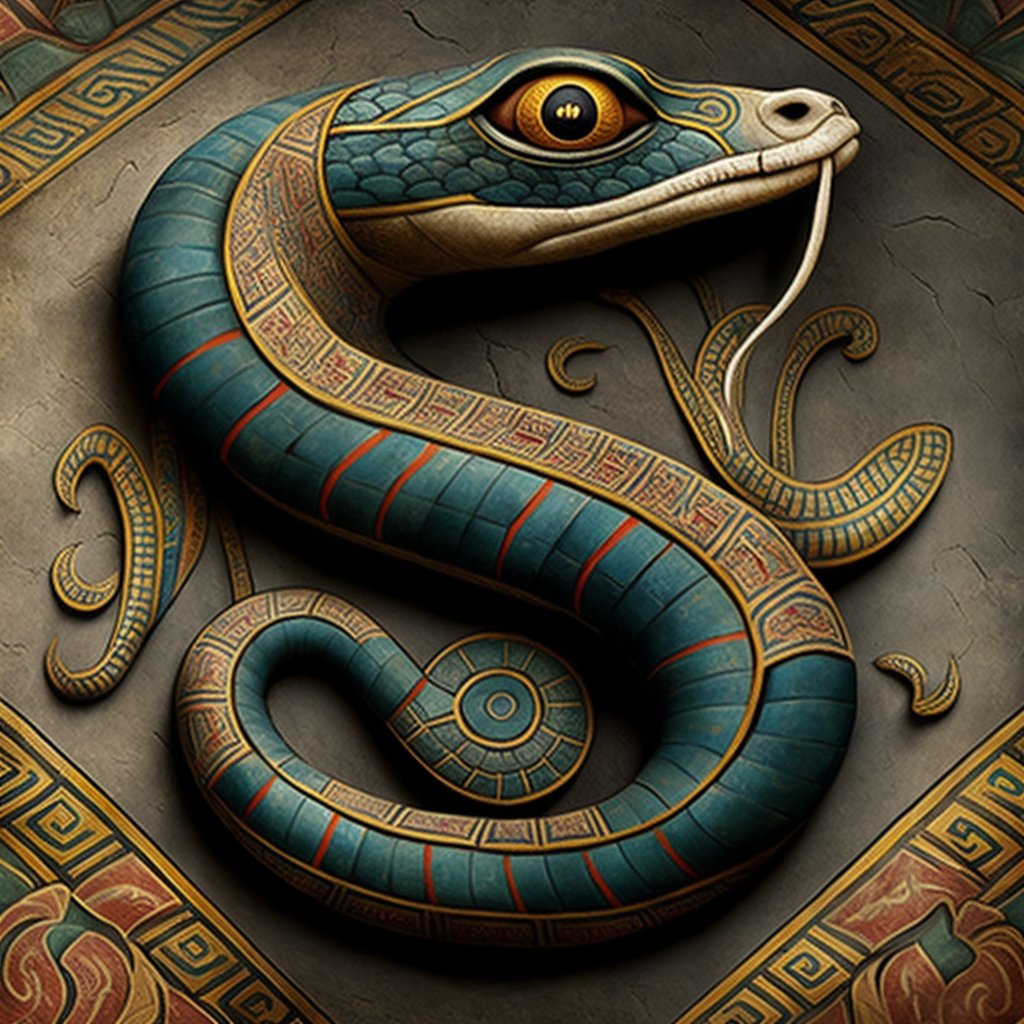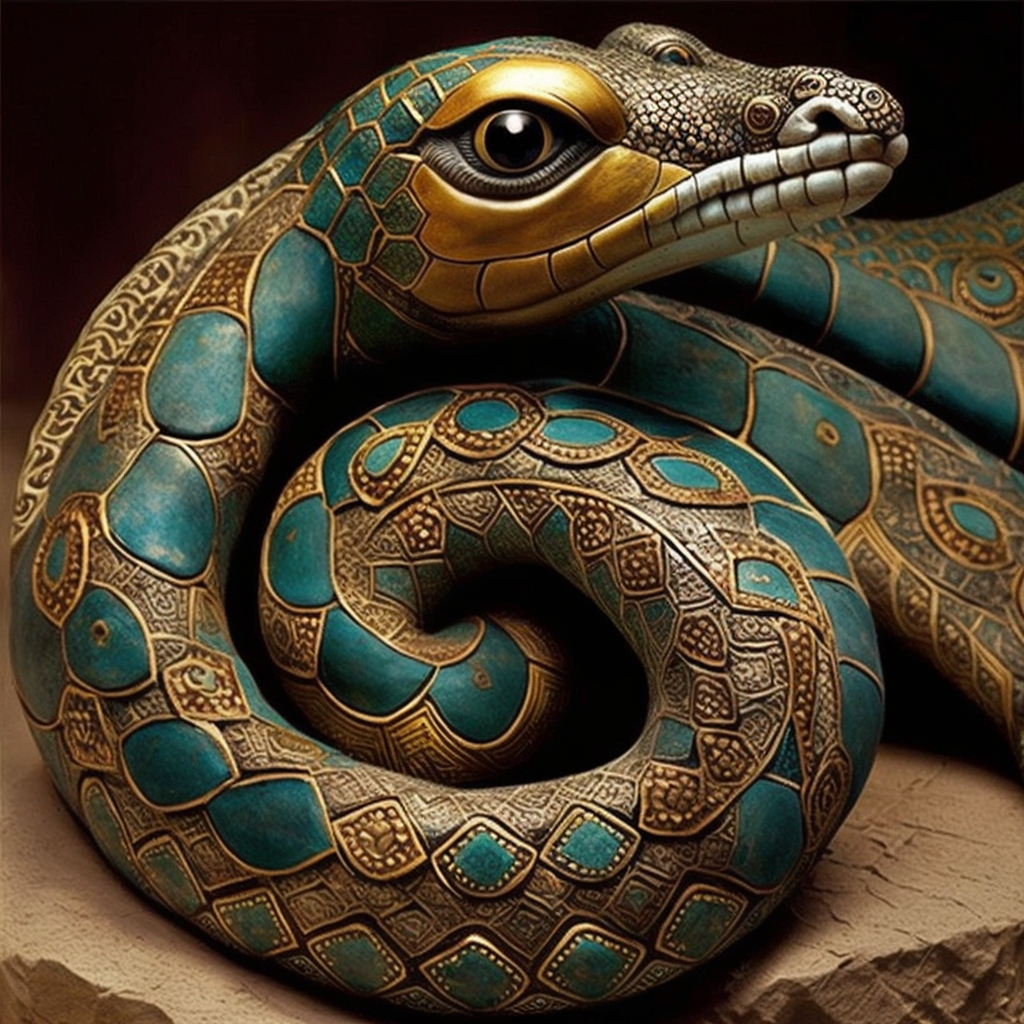
Snakes have been a symbol of power, rebirth, and transformation in many cultures throughout history. In ancient Egypt, snakes held a special place in religion and culture. They were associated with various deities, played a role in creation mythology, and were even kept as household pets.
In this article, we will explore the symbolism and significance of snakes in ancient Egyptian religion and culture.
Snakes were associated with many deities.
In ancient Egypt, snakes were associated with several deities. The most famous of these was the goddess Wadjet, who was depicted as a cobra and was the protector of the pharaoh. Another important snake deity was the god Apophis, who represented chaos and was a symbol of the forces that threatened order and stability.

They were a symbol of protection.
Snakes were also considered a symbol of protection in ancient Egypt. The goddess Wadjet was often depicted with her hood raised, ready to strike at any enemies of the pharaoh. Many amulets and talismans were also created in the shape of snakes and worn for protection.
Snakes played a role in creation mythology.
In ancient Egyptian creation mythology, the god Atum was said to have created the world by spitting out the first two deities, Shu and Tefnut, who were represented as a lion and a serpent respectively. The serpent Tefnut was associated with moisture and rain, which were essential for the growth of crops and the survival of the people.
They were kept as household pets.
In addition to their religious significance, snakes were also kept as household pets in ancient Egypt. Many families kept snakes in their homes as a form of protection and as a way to keep rodents and other pests at bay. Some snakes, such as cobras, were even considered sacred and were kept in temples as part of religious ceremonies.

A symbol of immortality.
In ancient Egypt, snakes were also associated with the concept of immortality. The ouroboros, a snake eating its own tail, was a common symbol of the eternal cycle of life, death, and rebirth. Snakes were also associated with the afterlife, as they were believed to guide the deceased through the underworld and into the afterlife.
Snakes held a special place in ancient Egyptian religion and culture. They were associated with many deities, played a role in creation mythology, and were even kept as household pets. Snakes were considered a symbol of protection, immortality, and transformation. The divine serpent continues to fascinate and inspire us today, as we continue to explore the rich symbolism and significance of this powerful creature in ancient Egyptian culture.

